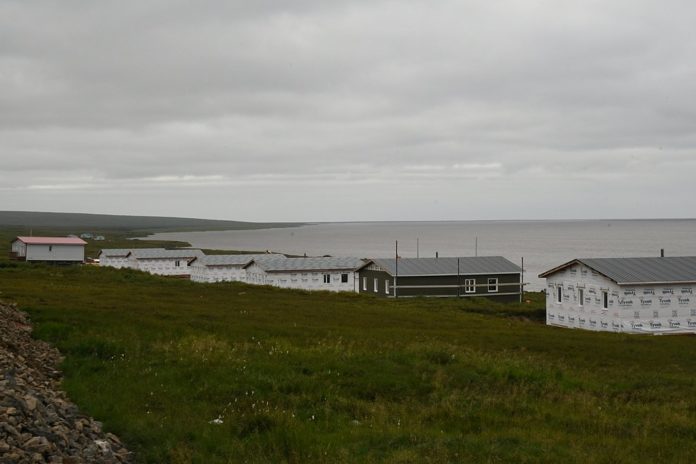
Federal agencies provided millions of dollars from 2016 through 2020 to repair infrastructure in Alaska Native villages damaged by climate change, but a number of threatened villages received no aid at all and need to be protected, the Government Accountability Office says.
In its detailed report released May 18, the GAO made numerous recommendations on short term actions needed to address the most urgent threats withut waiting for additional studies including some involving the Denali Commission, established in Alaska in 1998 to deliver federal government service with reduced administrative and overhead cost, with an emphasis on rural areas. At the same time, the GAO said, many Native villages also need more information to support longer-term planning. The Denali Commission has responded to the GAO, proposing that a single lead agency would be more effective that a collaborative effort of numerous agencies, “which are often bogged down in bureaucracy, take far too long to make decisions, and in the absence of quality leadership, cannot secure agreement among the various participants.”
Garrett Boyle, federal co-chair of the Denali Commission, told the GAO he agreed with the recommendation to identify options for providing technical assistance that is specifically designed to help Alaska Native villages navigate and obtain assistance from the variety of potentially available federal programs.
“However we do not agree that we should reprioritize our available resources to a great degree solely to provide technical assistance,” because of its negative impact on other Denali Commission programs, he said.
Boyle noted that the Denali Commission has been providing technical assistance to a number of communities throughout Alaska since 2016 and plans to continue doing so, but also has a broad statutory mission and provides funds to threatened communities through direct grants to carry out relocation projects. He also noted that the GAO found 31 programs across 10 agencies that villages and tribes could access to fund needed work.
“It should not be solely up to the commission to fund a program of technical assistance on behalf of 10 other agencies,” he wrote. “I think those agencies should assist in providing needed technical assistance.”
The Denali Commission maintains a database of all its projects at denali.gov
One additional mechanism that would lead to improving coordination to streamline program delivery across agencies is more agencies being willing to utilize the commission’s transfer authority, Boyle said.
The Denali Commission Act provides for any federal agency authorized to carry out an activity that is within the authority of the commission may transfer to the commission any appropriated funds for the activity. That authority gives the commission the power to act as a “banker,” pooling funds from various agencies which can then be utilized in an efficient manner, Boyle told the GAO. That includes allowing one agency to issue one award covering all costs, rather than multiple agencies issuing multiple awards to fund one project. Also, the authority turns year-limited funds into no-year funds, allowing for long term projects as needed, he said, further reducing the number of hurdles faxing Alaska Native communities.
At this point, Boyle said there will be no further action from the GAO.
“GAO basically provides information/analysis to Congress and the executive,” he said. “Once they issue a report like this, the recommendations they make are in the hands of the agencies/Congress. So, it will depend on if agencies implement the recommendations and if so, on what sort of timeline.”





